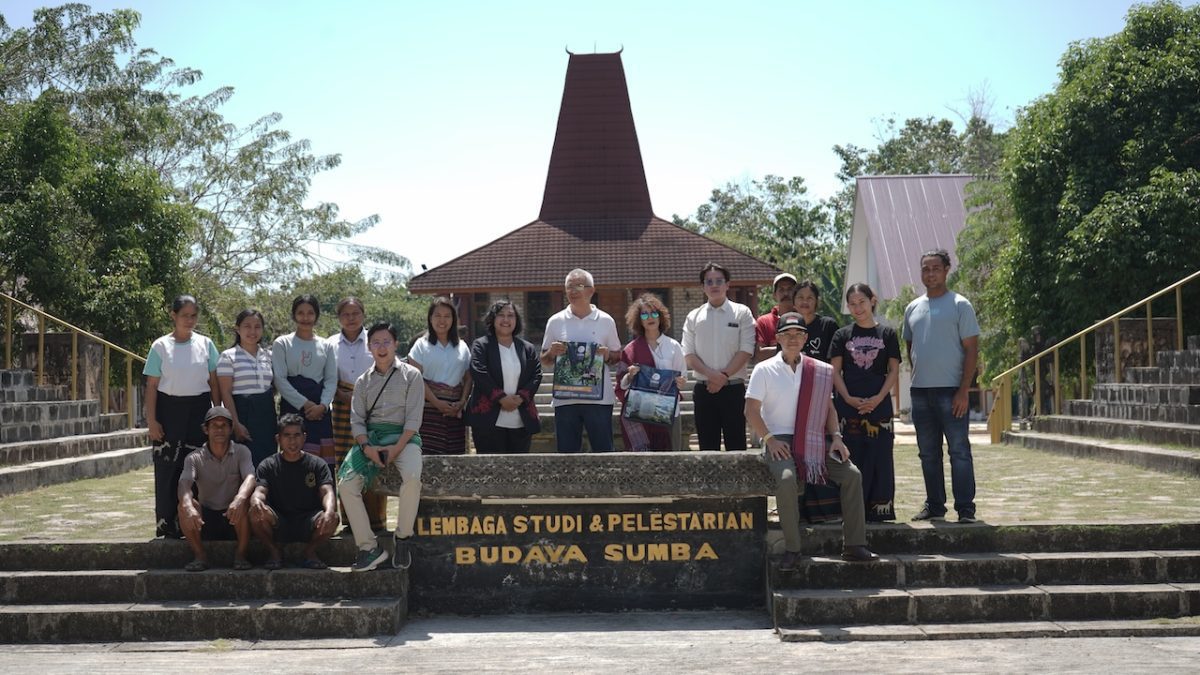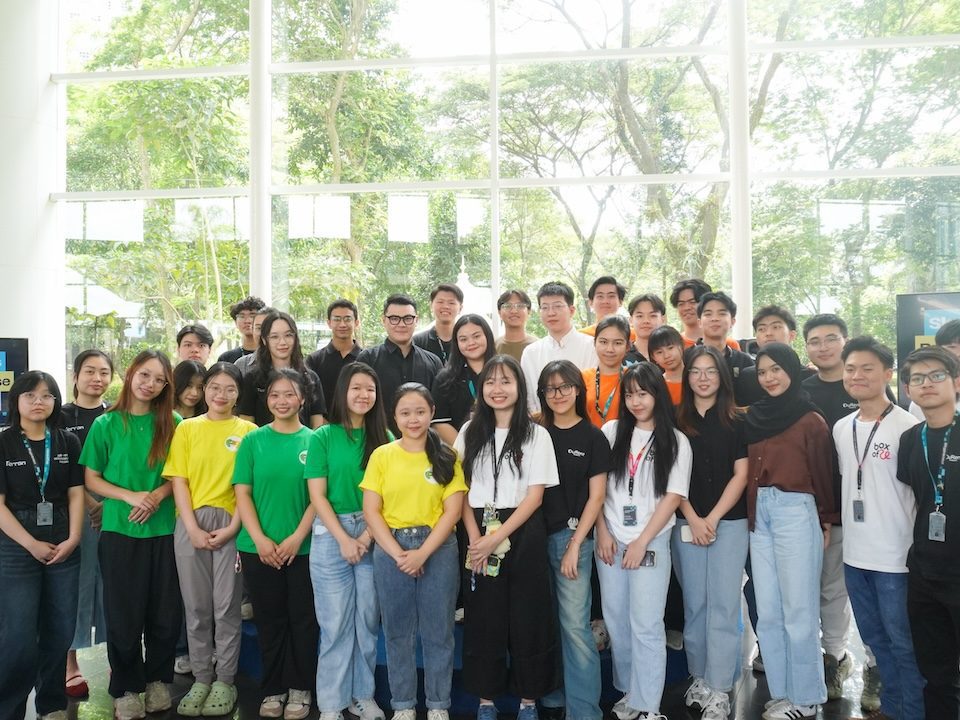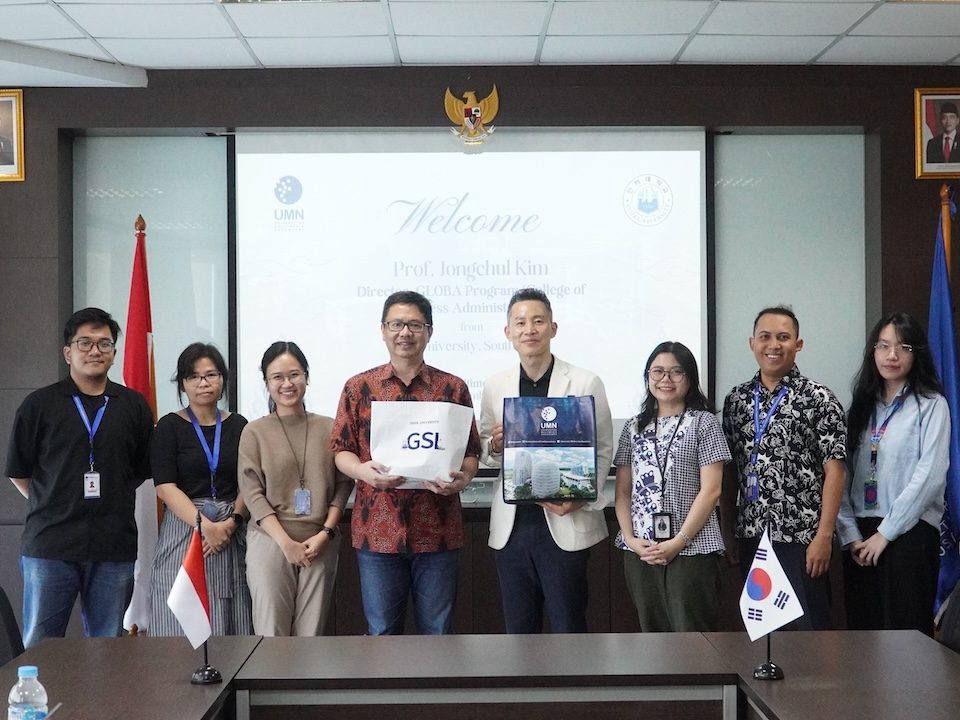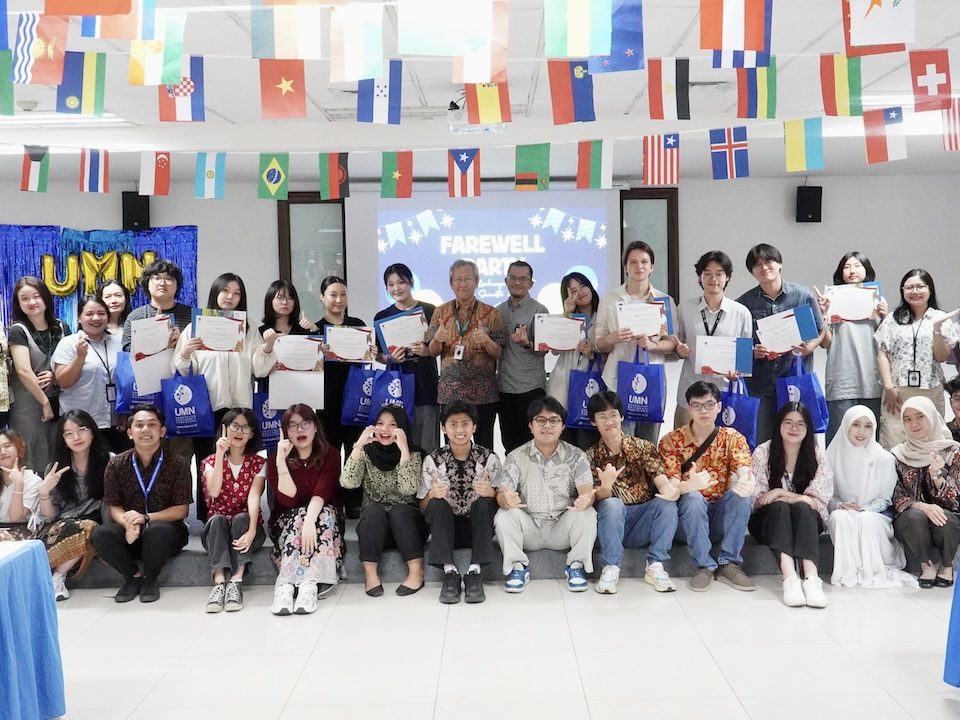
UMN Computer Engineering Lecturer Secures International Grant from IEEE
August 13, 2025
Bringing Home 3 International Awards, UMN Students Offer Solutions for The Future of Food
August 18, 2025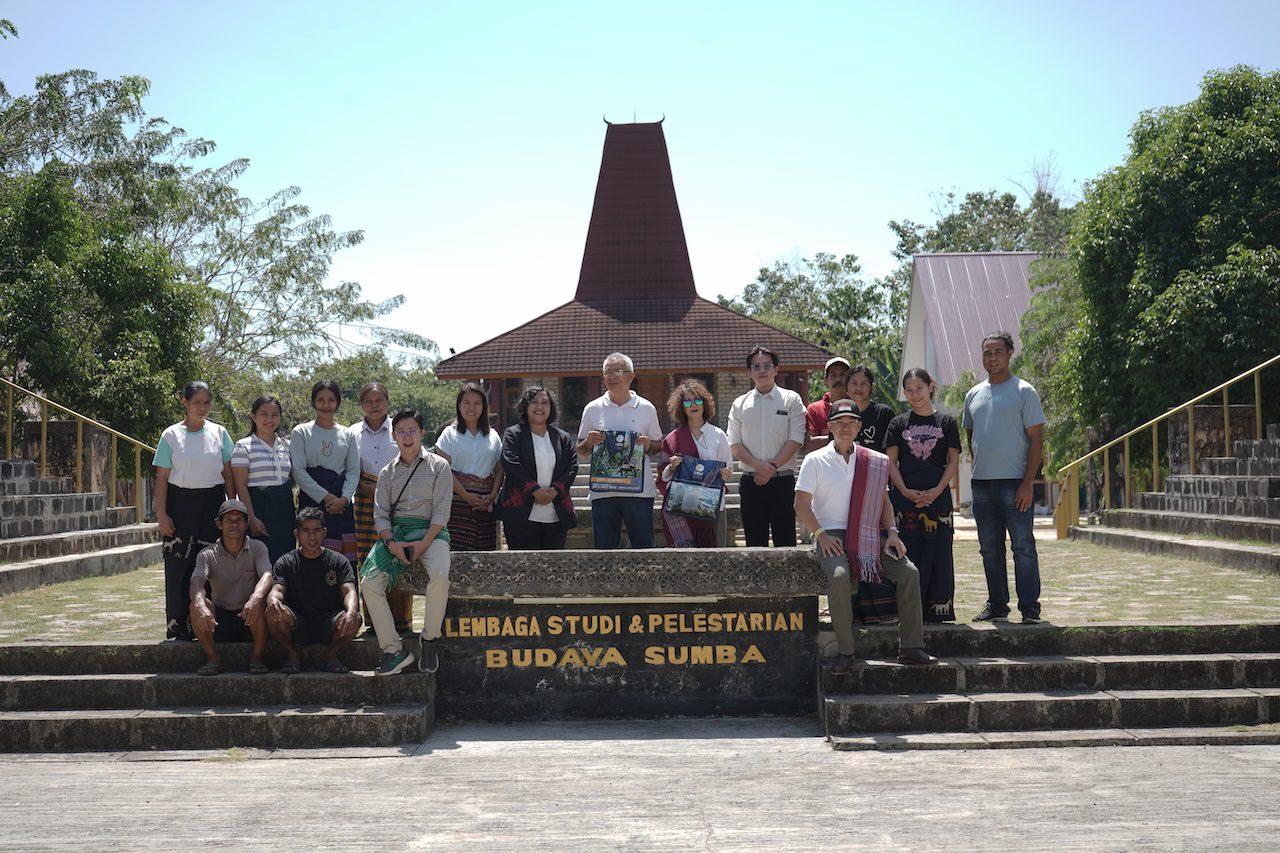
Photo of UMN staff with Yayasan Kawan Lama (Doc. UMN)
West Sumba, NTT — As part of the Merajut Asa Sumba program initiated by the Kawan Lama Foundation, Universitas Multimedia Nusantara (UMN) and the Kawan Lama Foundation have launched a community service program at the Sumba Cultural Studies and Preservation Institute in West Sumba, East Nusa Tenggara.
This initiative represents a concrete step in strengthening local community capacity through training that highlights cultural values and sustainability principles. This collaboration is expected to empower local communities to manage tourism potential sustainably while preserving Sumba’s cultural heritage. The program underscores the Kawan Lama Foundation’s commitment to integrating the Arts & Culture and Environment pillars to create long-term benefits for communities and regions.
The program is also driven by the spirit of supporting the achievement of the Sustainable Development Goals (SDGs), particularly in terms of improving access to quality education (SDG 4), strengthening women’s roles in development (SDG 5), creating decent jobs and local economic growth (SDG 8), and reducing social and economic inequalities (SDG 10). This initiative is also aligned with the principles of responsible consumption and production (SDG 12). It emphasizes the importance of cross-sector partnerships (SDG 17) to achieve more inclusive and equitable development goals.
As a center for cultural interaction and community education, the Sumba Cultural Studies and Preservation Institute is crucial in preserving cultural heritage while serving as a learning space for local communities to build an ethical and sustainable tourism ecosystem. This initiative aims to create long-term social impact rooted in local strengths through training programs, mentoring, and applied research activities.
The Chairman of the Sumba Cultural Studies and Preservation Institute, Father Robert Ramone, C.Ss.R., emphasized that cultural preservation must go hand in hand with community capacity building. “Sumba culture is not just a heritage but also a strength for building the future. Through this training, we learn how to welcome guests properly, manage local potential, and remain true to the values that define us,” he said.
Tasya Widyakrisnadi, Chairperson of the Kawan Lama Foundation, also expressed her hopes for this collaboration. “We believe that sustainability begins with empowering local communities. Sumba’s culture is an invaluable identity, and through this program, we aim to help the community preserve this heritage while equipping them with relevant skills for the present. Our hope is that this training not only enhances knowledge but also opens economic opportunities, strengthens self-confidence, and promotes community self-reliance. This collaboration with UMN is proof that the private sector, education, and communities can work together to create tangible positive change.”
UMN Vice Rector for Research, Innovation, and Sustainability, Prof. Dr. Florentina Kurniasari, added that this activity reflects UMN’s concrete steps in integrating sustainability principles into all aspects of university activities.
“UMN has been committed to quality education that supports sustainability principles from the start. In all its Tri Dharma activities, we consistently promote the acceleration of SDG achievement, and this collaboration is tangible proof of that. We hope this partnership will continue and truly benefit the community,” Prof. Florentina said.
The Head of UMN’s Sustainability Center and coordinator of this activity, Maria Advenita Gita Elmada, stated that this collaboration is part of UMN’s commitment to providing transformative and meaningful education.
“I believe the best learning occurs when students and academics are directly engaged with the community, listening and learning from real-world practices,” Maria said.
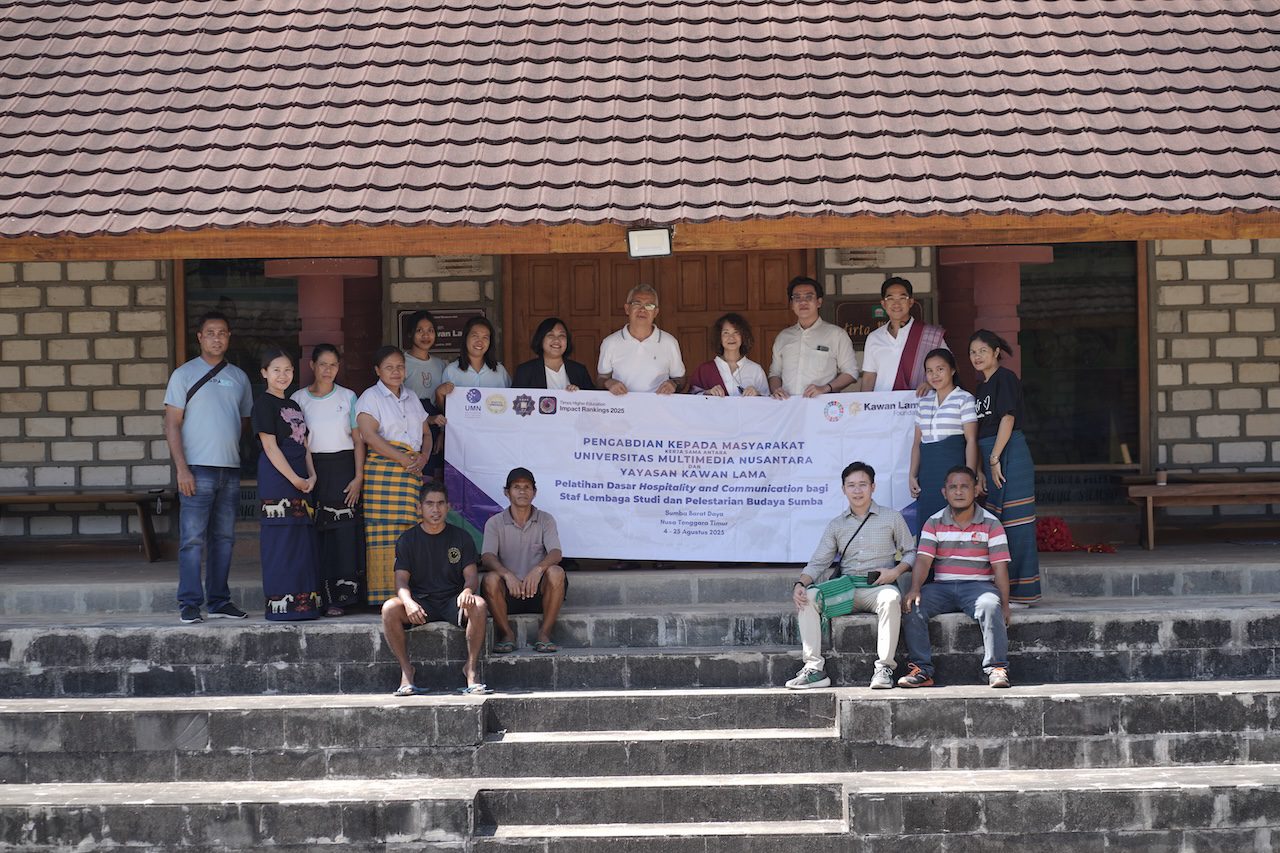
Group photo of UMN and Yayasan Kawan Lama staff during training in Southwest Sumba. (Doc. UMN)
In addition to community service activities, this program will produce outputs in the form of research and scientific publications as UMN’s contribution to knowledge development, particularly in empowerment communication and community-based tourism. The involvement of interdisciplinary faculty members from Communication Studies and Hospitality Management further strengthens the multidisciplinary approach in this program.
With the support of various parties, this collaboration is expected to serve as a model of best practices in local development partnerships aligned with global agendas. The Sumba Cultural Studies and Preservation Institute bridges tradition and innovation and is now evolving as a living space that facilitates sustainable change by, for, and with the community.
By Sustainability Center
English translation by Levina Chrestella Theodora
Kuliah di Jakarta untuk jurusan program studi Informatika| Sistem Informasi | Teknik Komputer | Teknik Elektro | Teknik Fisika | Akuntansi | Manajemen| Komunikasi Strategis | Jurnalistik | Desain Komunikasi Visual | Film dan Animasi | Arsitektur | D3 Perhotelan , di Universitas Multimedia Nusantara.

